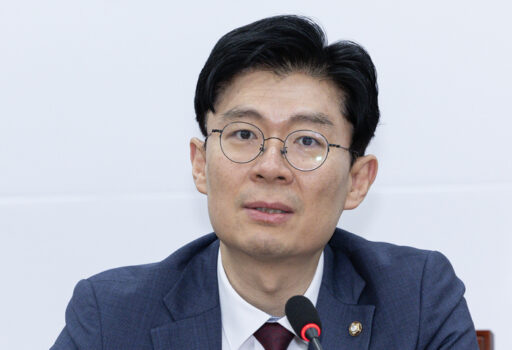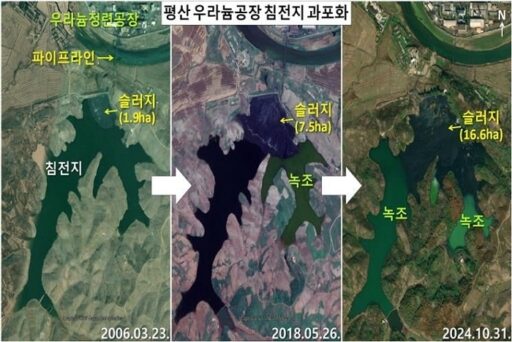Controversy Over Government Response to North Korea's Radioactive Waste Discharge Situation
On the 30th, People Power Party lawmaker Cho Jeong-hoon sharply criticized President Lee Jae-myung's response regarding the circumstances surrounding radioactive waste discharge from the uranium refining plant in Pyongsan, North Hwanghae Province, North Korea, into the Yellow Sea.
Lawmaker Cho pointed out the inconsistent attitude of President Lee, who reacted strongly to Japan's discharge of contaminated water from Fukushima, while remaining silent on the issue of North Korea's radioactive waste.
Inconsistent Attitude
Through Facebook, Lawmaker Cho stated, "While satellite images and expert warnings are pouring in, the president's voice is not heard," and he criticized, "Why do you shout 'nuclear terror' at Japan while remaining silent about North Korea?"
This was contrasted with President Lee's strong criticism of Japan's discharge of radioactive wastewater in 2023, where he stated, "Japan has crossed a line it should not have crossed," and called the discharge of nuclear contaminated water "a declaration of war against Pacific coastal nations."

Call for Strengthening Radiation Monitoring System
Lawmaker Cho also raised issues with the current government's radiation monitoring system.
He pointed out, "The government only repeats 'there has been no detection,'" while noting, "The Han River's radiation analysis is conducted only twice a year, and there isn't even a systematic monitoring network in the estuary and tributaries." He further criticized, "If you claim there has been no detection in areas where measurements were not taken, it is like closing your eyes and saying 'I see nothing.'"
In response, Lawmaker Cho urged, "Expand radiation monitoring of the Han River, tributaries, and estuary to at least once a month," and called for the installation of automatic measurement networks in the Yellow Sea and estuary. He particularly emphasized, "If North Korea's intentional discharge is a fact, then that is when we should speak of 'nuclear terror.'"
Lawmaker Cho concluded by stating, "The people want the government to have consistent principles," and added, "In the face of life and safety, the president must stand not as a politician but as a national leader."
U.S. North Korea Specialist Claims "Radioactive Waste Flowing into River from North Korean Uranium Plant"… No Government Confirmation Yet
Meanwhile, there has been speculation that untreated radioactive wastewater from a uranium refining plant located in Pyongsan, North Hwanghae Province, North Korea, has recently flowed into the Yellow Sea via rivers.
Dr. Jeong Seong-hak, a remote sensing expert from the Korea Space Security Association, shared through the North Korea-specialized media Daily NK that he analyzed satellite images from the U.S. Environmental Systems Research Institute (ESRI)'s 'WorldView-3,' revealing that "in a satellite image taken at the end of October last year, it was confirmed that wastewater from the Pyongsan uranium plant's sedimentation basin is being discharged into a small river via a drainage ditch."

He further added, "The wastewater likely flowed along the small river for about 2km, joining the Yesong River, and then possibly entered the Yellow Sea after passing through Ganghwa Bay."
However, this claim has not yet been confirmed at the government level. The U.S. government has also not verified it as a 'fact,' and neither the South Korean government, which could suffer real harm if this wastewater is confirmed, nor the governments of China and Japan have substantiated the claim.
It is reported that this wastewater has also not been discussed within the 'South Korea-U.S.-Japan security framework.'
Image Source: Cho Jeong-hoon, People Power Party lawmaker / News1, Google Earth, WorldView-3, Korea Space Security Association expert Jeong Seong-hak


